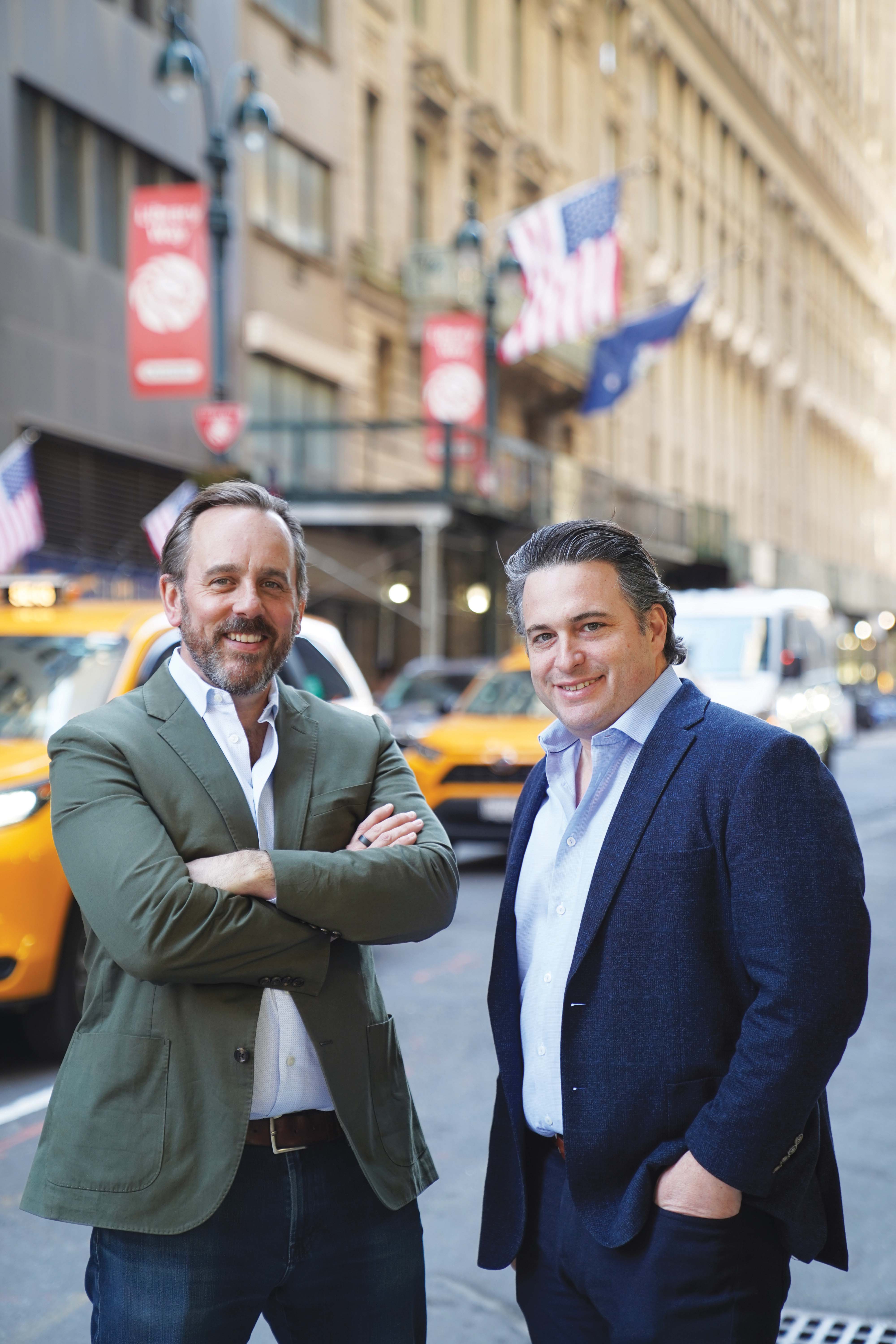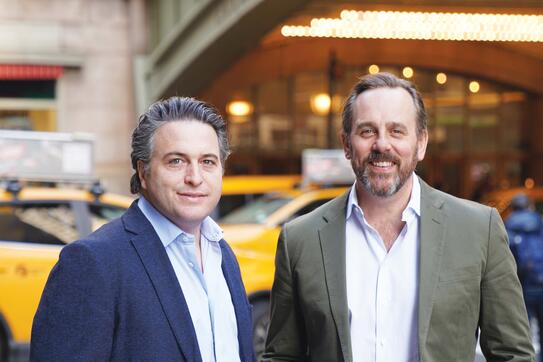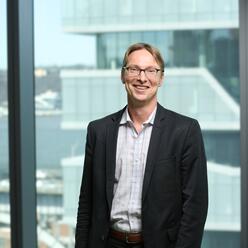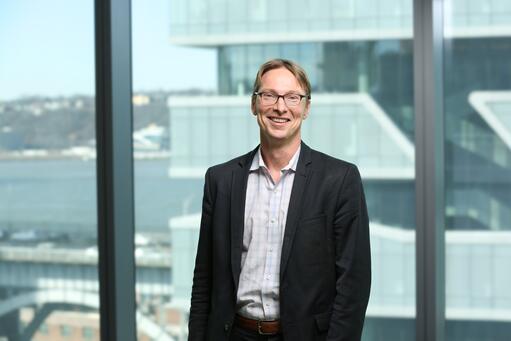The commercial real estate industry, by all accounts, is uncertain. A cocktail of factors—the COVID-19 pandemic, the advent of remote work, skyrocketing interest rates, overextended lenders, and declining cash flows—has led to what Columbia Business School Professor Stijn van Nieuwerburgh referred to as “a train wreck in slow motion” in a 60 Minutes television interview.
But any good entrepreneur knows that a market challenge comes with an opportunity. For Maverick Real Estate Partners, that opportunity has come relatively recently, but it has been more than a decade in the making.
Today, Maverick has closed nearly 200 distressed debt investments across New York City's five boroughs, more than any other investor in the market. The company, founded by Columbia Business School alumni David Aviram '06 and Ted Martell '06, didn't start inking $247 million deals with Blackstone and doing interviews with 60 Minutes overnight, however.
Launched more than a decade ago, in the aftermath of the 2008 financial crisis, Maverick emerged after Aviram and Martell met at CBS while studying on the real estate finance MBA track. Martell had previously worked in the construction business, while Aviram had worked as an analyst at Bloomberg. The two met through the School's student-run Real Estate Association. They quickly became friends, often speaking with one another about real estate opportunities. Martell would eventually become president of the Real Estate Association, which is today supported by the Paul Milstein Center for Real Estate.

Maverick owners, Aviram '06 and Martell '06
Later at CBS, Aviram and Martell would attend multiple study abroad trips run by the Jerome A. Chazen Institute for Global Business. Between trips to Washington, DC, London, Berlin, Hong Kong, and Shanghai, the two spoke further and realized they had entrepreneurial aspirations. Upon graduating from CBS, they formed Maverick, looking for real estate opportunities across New York City while maintaining their respective day jobs: Aviram as a vice president at a real estate investment banking firm and Martell as a project executive at a real estate developer.
Then came the financial crisis. While some investors saw the commercial real estate industry as hopeless, Aviram and Martell saw a path for Maverick. Quitting their jobs, the two opened up shop in a 300-square-foot office and got to work. Though neither of them had a formal background in distressed debt, they knew that an opportunity was there.
As the financial crisis unfolded, many private equity fund managers tightened their belts, decreasing investments during a period of unprecedented risk. Meanwhile, Aviram and Martell took an educated leap, developing a list of banks that had bad debt building up on their balance sheets. Relentless cold calling would lead to the duo getting in front of banks' special assets officers.
“The special assets officer would wheel a crate of documents into a conference room and let us pore over them for hours,” Aviram says.
With its own proprietary deal flow coming directly from banks, Maverick was on the right track. There was just one problem: a lack of capital.
So Aviram and Martell got to work again, developing a list of private equity firms and cold calling potential partners. By the end of their first year in business in 2010, Maverick closed its first deal, a loan secured on a property located in a prime part of Williamsburg, Brooklyn. That deal was critical, because it not only allowed Maverick to keep the lights on but also taught Aviram and Martell how important it is to have capital at the ready.
Beginning in the 2010s, the two cultivated their own discretionary capital by raising funds from friends and family, followed in succession by increasingly larger funds backed by institutional investors. Simultaneously, they began crafting data infrastructure that would eventually become Maverick's bread and butter: the ability to pinpoint a distressed deal and understand what caused it to become distressed in the first place. After they spotted a mechanic's lien on a property, for example, they realized that mechanics liens were leading indicators of distress. Aviram and Martell sought out ways to find other mechanics liens, spending weeks in the basement of the Manhattan County Clerk's office at 60 Centre Street. There, they printed and scanned thousands of pages of documents and hired contractors to code them into a spreadsheet.
From there, the flow was set: Aviram and Martell would find out a mechanic's lien was filed on a particular property, cold call the property's lender, and start discussing a sale.
This tactic—cultivating a dataset, crafting lead lists, and executing on leads—formed Maverick's engine throughout the 2010s. Over time, the partners would lean further into automation, figuring new ways to ingest, clean, connect, and query data, creating lead lists for acquisitions analysts to source opportunities. The proprietary algorithms developed by Aviram and Martell set the stage for the company's data strategy team to streamline Maverick's data warehouse. This made for more efficient sourcing, underwriting, portfolio management, and investor reporting.
The two also credit the technical skills they learned from CBS's real estate curriculum— property underwriting and understanding capital markets—and their relationships with members of CBS's Chazen Institute and Real Estate Association with being the foundation for building Maverick in its early stages.
“We felt like the Columbia network cemented the broader networks that we had,” Martell says. “When you start a business in New York City without any money and get into real estate, it's a bit daunting. But we found some comfort in having those networks behind us.”
“ We felt like the Columbia network cemented the broader networks that we had. When you start a business in New York City without any money and get into real estate, it's a bit daunting. But we found some comfort in having those networks behind us.” -Maverick co-founder, Ted Martell '06
Today, Maverick is closing in on $1 billion in investments, thanks in part to a growing team of nearly 20 employees and perpetual improvements to its data infrastructure. While Aviram and Martell find their early years in the industry to be formative, one of their few regrets is that they didn't launch the company sooner.
“I think taking that leap, that was really the beginning of all the excitement,” Martell says. “You could maybe say we weren't ready or maybe we didn't know enough to start a business. We took the leap because we trusted ourselves and our training. Sometimes, you just need to try.”


